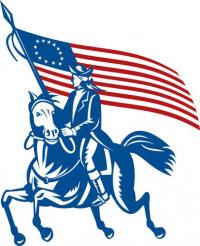0
















| Thumbs Up |
| Received: 118 Given: 0 |

I wonder, could any kind-hearted German speaker translate the terms on this famous and important map?:
http://img185.imageshack.us/img185/5710/settle.jpg
Incidentally, if anyone knows of a better more detailed copy, please forward the link!
Vielen Dank!













| Thumbs Up |
| Received: 25 Given: 0 |

OK, hopefully I didn't butcher it too much:
* "Rundlinge" means something like "little round ones", I assume it means small, round villages.First key: Acquired Germanic villages (House villages) of the old Germanic settlement areas.
Second key: Acquired Germanic villages (House villages) in the territory of the early Medieval conquests.
Third key: Single farmsteads
Fourth key: Single farmsteads of the high mountains.
Fifth key: Manorial hamlets.
Sixth key: "Little round villages"* , mostly German foundings.
Seventh key: Street villages of Slavic origin.
Eighth key: Settlements of Roman origin.
Ninth key: Row villages with Marschbusen (March breasts? lol)**, after a Netherlandic model, partly laid out by agricultural*** Netherlanders, mostly founded in the 12th and 13th centuries.
Tenth key: Row villages with Waldbusen (wood breasts?)**, founded from the 9th to 13th century.
Paragraph below these: The Slavic border (limes sorabicus) at the time of Charlemagne was drawn from Kiel to the Eastern Alps. Also from the Danube to the Lower Rhine, the Northern and Eastern borders of the Roman dominion of the first centuries after Christ. The map shows ethnic and tribal appearances and can only serve indirectly to identify Race.
On the left side: The Slavs in Germany.
Very bottom below the map: Map XXVII. The rural settlement forms in central and northwestern Europe. (after Meizen and Schlueter [these are two surnames])
**"Marchbusen" and "Waldbusen" - I think the "breasts" here must mean something like fortifications. Marschbusen then would be border fortifications and Waldbusen would be wooden fortifications.
***"agricultural" - the German here was "ins Land berufenen" which means something like "called to the land" in an occupational sense. For example, "Beruf" the noun means a trade, profession, or vocation.
Last edited by Electronic God-Man; 04-26-2009 at 10:19 PM.














| Thumbs Up |
| Received: 118 Given: 0 |

Excellent work!
Makes sense. I'm racking my brains for an English cognate... Maybe 'boss' in the centre of a shield?**"Marchbusen" and "Waldbusen" - I think the "breasts" here must mean something like fortifications. Marschbusen then would be border fortifications and Waldbusen would be wooden fortifications.
Thinking again, though, isn't 'Marsch' just Enlgish 'marsh'?, Our march is their Mark, no? Maybe this is some terrain feature, if one has Woldbusses, and the other Marshbusses...
THe Marsch ones are in the lowlands of Frisia and the Elbe mouth, as well as in Pommerania which may have the same terrain type?
Wald ones are in Silesia and scattered highland zones like the Harz and Bohemian hills...
'Invited', perhaps? Carlyle's preface to his Frederick the Great biography mentions Netherlanders being recruited to people the newly conquered Marches.***"agricultural" - the German here was "ins Land berufenen" which means something like "called to the land" in an occupational sense. For example, "Beruf" the noun means a trade, profession, or vocation.













| Thumbs Up |
| Received: 25 Given: 0 |

Thanks.
Yes, Marsch is Mark is March. That's what I meant with the "border fortifications", "March fortifications". But not a marsh as in a swampy place, rather a border region or frontier.Thinking again, though, isn't 'Marsch' just Enlgish 'marsh'?, Our march is their Mark, no? Maybe this is some terrain feature, if one has Woldbusses, and the other Marshbusses...
THe Marsch ones are in the lowlands of Frisia and the Elbe mouth, as well as in Pommerania which may have the same terrain type?
Wald ones are in Silesia and scattered highland zones like the Harz and Bohemian hills...
"Busen" is what was throwing me off. It literally means "breasts" so I assumed it must be in regard to some sort of protective something or other.
The verb "berufen" may mean to appoint, to appeal, or to invoke, so you are probably correct. It must be referring to the fact that they were "called into the land". I read "called into the land" with the knowledge that the noun "Beruf" was a profession or vocation and assumed it had something to do with being farmers who were agriculturally savvy or something. Like they were called to farm the land.'Invited', perhaps? Carlyle's preface to his Frederick the Great biography mentions Netherlanders being recruited to people the newly conquered Marches.
With the information you provided, your idea that it carries some meaning of them being invited into those parts makes much more sense.
There are currently 1 users browsing this thread. (0 members and 1 guests)
Bookmarks